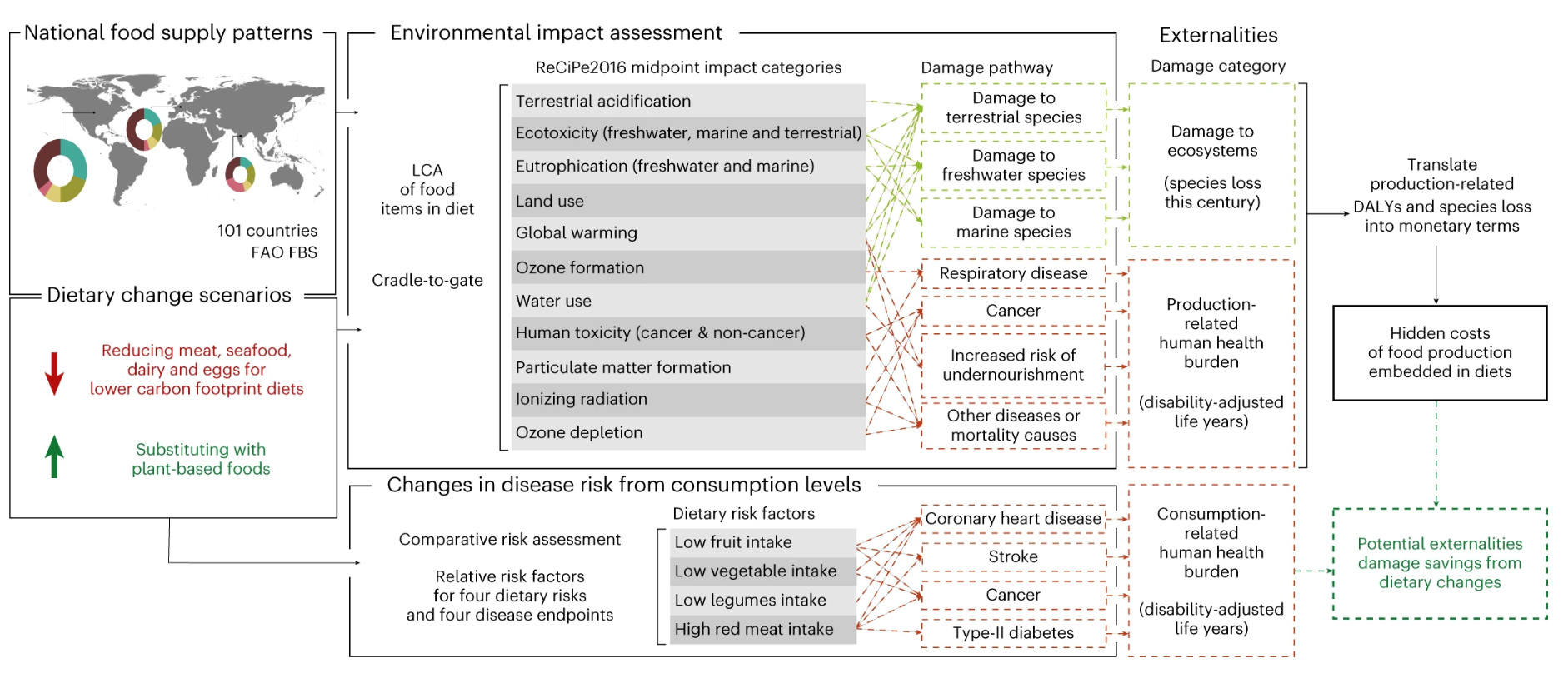Potential external cost savings associated with the reduction of animal-sourced foods remain poorly understood. Here we combine life cycle assessment principles and monetarization factors to estimate the monetary worth of damage to human health and ecosystems caused by the environmental impacts of food production. The authors find that, globally, approximately US$2 of production-related external costs were embedded in every dollar of food expenditure in 2018—corresponding to US$14.0 trillion of externalities. A dietary shift away from animal-sourced foods could greatly reduce these ‘hidden’ costs, saving up to US$7.3 trillion worth of production-related health burden and ecosystem degradation while curbing carbon emissions. By comparing the health effects of dietary change from the consumption versus the production of food, we also show that omitting the latter means underestimating the benefits of more plant-based diets. The authors' analysis reveals the substantial potential of dietary change, particularly in high and upper-middle-income countries, to deliver socio-economic benefits while mitigating climate change.

You might also be interested in:
- In Focus: Leveraging partnerships and innovations for sustainable and nutritious diets with DSM: Lead Scientist Nutritionist Maaike Bruins and Sustainability Director Jacobine Das Gupta.
- The Potential of Food Fortification as an Enabler of More Environmentally Sustainable, Nutritionally Adequate Diets
- Iodine fortification of plant-based dairy and fish alternatives: the effect of substitution on iodine intake based on a market survey in the UK
- Plant-Based Alternatives: The environmental sustainability and health implications
- Risky Seafood Business, Understanding the Global Footprint of UK's Seafood Consumption
- True Cost Accounting of Food
Photo Credit: Vanessa Loring/Pexels